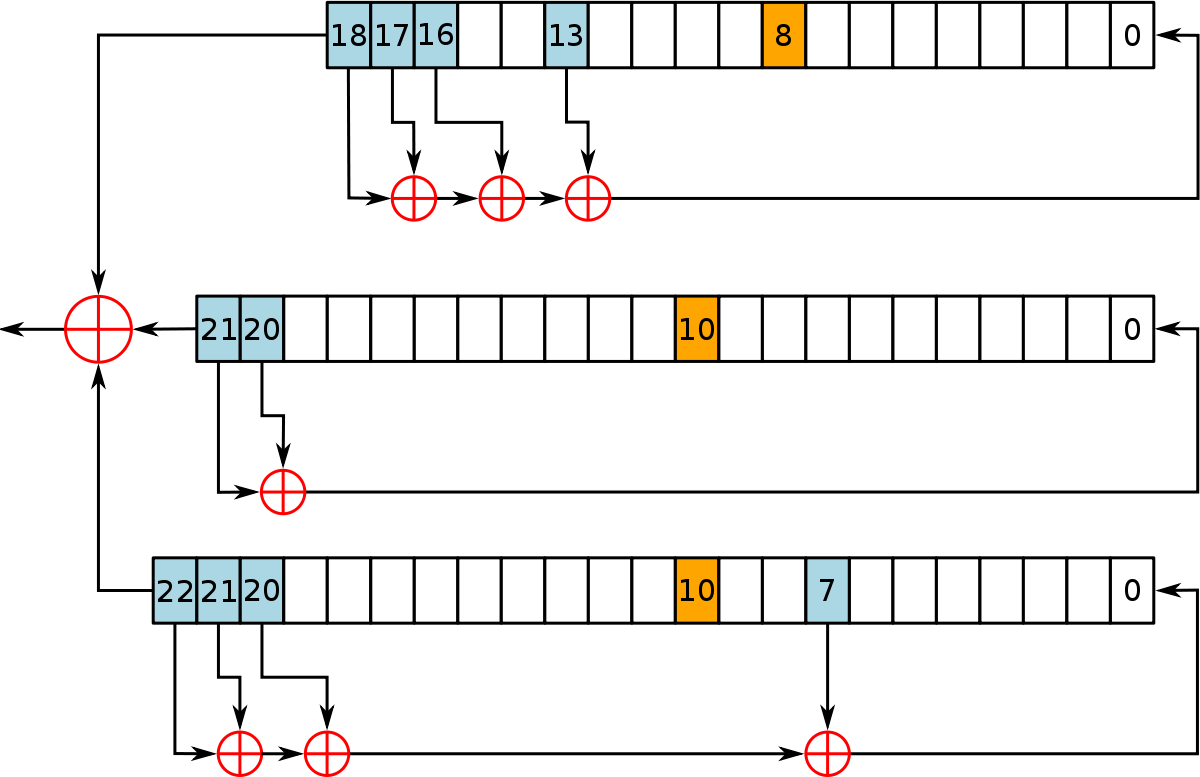Example of Stream Ciphers

One prominent example of a stream cipher is the RC4 algorithm. RC4 (Rivest Cipher 4) is a symmetric-key stream cipher developed by Ron Rivest in 1987. It was initially designed for use in the encryption of wireless networks and later became widely used in internet protocols such as SSL/TLS.
Key features of RC4 include:
Stream Cipher: RC4 operates as a stream cipher, generating a keystream of pseudo-random bits based on an initial secret key.
Simple Design: RC4 has a relatively simple and efficient design, making it suitable for use in applications requiring high-speed encryption and decryption.
Variable Key Length: RC4 supports variable key lengths, typically ranging from 40 to 2048 bits. Longer keys generally provide stronger security.
Fast Initialization: RC4 has a fast initialization process, allowing for quick key setup and encryption/decryption operations.
Widespread Use: RC4 gained widespread adoption in various cryptographic protocols, including early versions of SSL/TLS, WEP (Wired Equivalent Privacy) for wireless networks, and the widely used SSH (Secure Shell) protocol.
Despite its initial popularity, RC4 has been found to have security vulnerabilities, particularly in its key scheduling algorithm. These vulnerabilities can lead to attacks such as the RC4 biases, which weaken the encryption strength of the algorithm.
Due to these security concerns, RC4 is no longer recommended for use in new cryptographic implementations. Modern cryptographic protocols and standards have deprecated the use of RC4 in favor of more secure algorithms such as AES (Advanced Encryption Standard). However, RC4 remains relevant historically and serves as an important case study in the development and analysis of cryptographic algorithms.
Thank you,